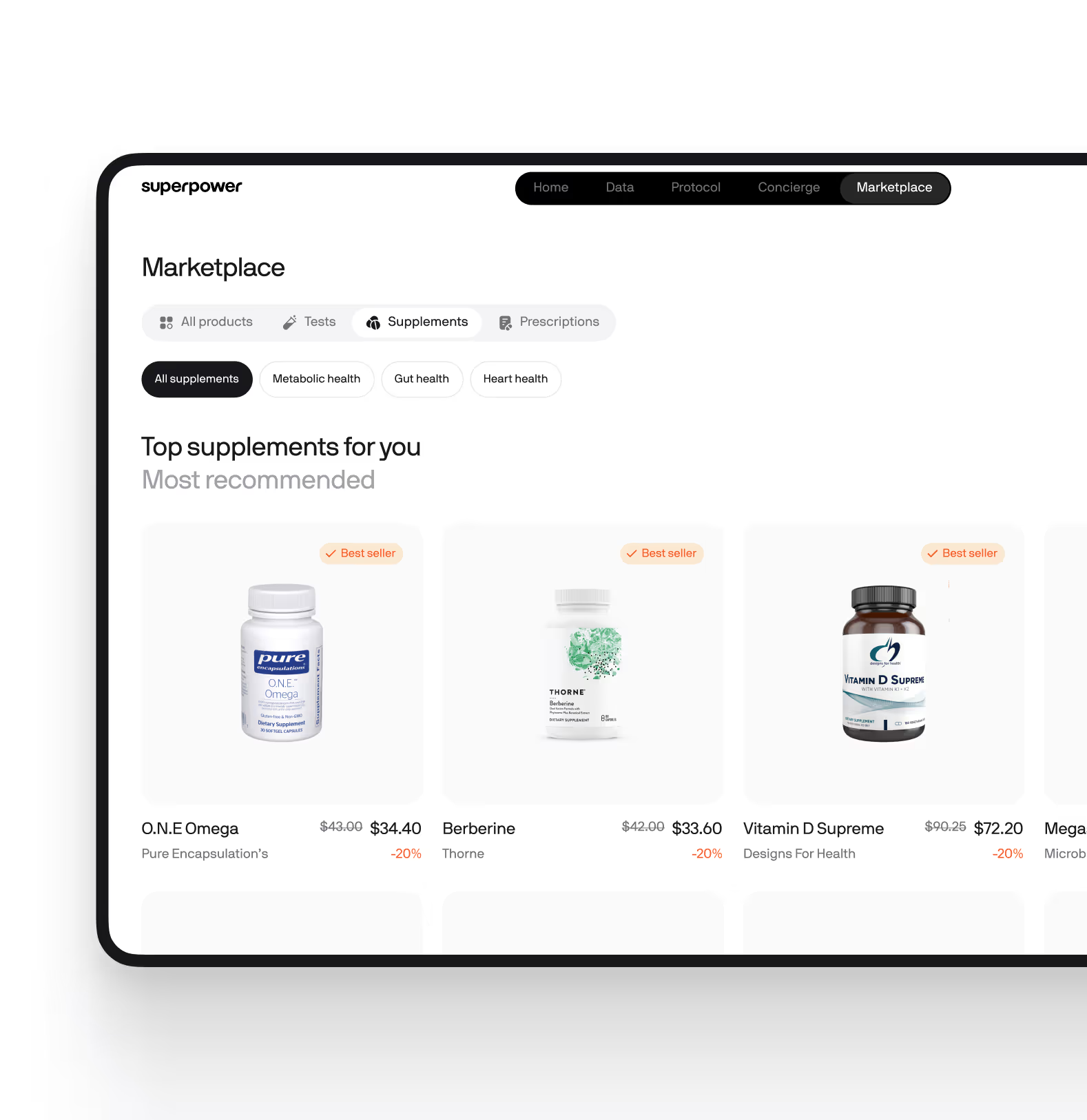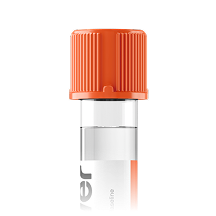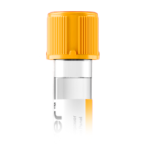Key Insights
- Understand how this test reveals your body’s current thyroid cancer activity and whether residual or recurrent disease is present.
- Identify a tumor-produced protein (thyroglobulin) that helps explain unexplained imaging findings or rising risk signals after treatment for differentiated thyroid cancer.
- Learn how factors like remaining normal thyroid tissue, TSH levels, antibodies to thyroglobulin, and assay type may shape your results.
- Use insights to guide follow-up choices with your clinician, such as imaging, TSH management, or the timing of repeat testing.
- Track your trajectory over time to spot meaningful trends like declining, stable, or rising thyroglobulin levels.
- Integrate results with related panels and tools—anti‑thyroglobulin antibodies, TSH, neck ultrasound, and cross‑sectional imaging—for a complete view of disease status.
What Is a Thyroglobulin Test?
The thyroglobulin test measures the amount of thyroglobulin (Tg) in your blood. Tg is a protein made by normal thyroid cells and most differentiated thyroid cancer cells (papillary and follicular types). After surgery to remove the thyroid, often followed by radioactive iodine ablation, Tg becomes a sensitive tumor marker because little to no normal thyroid tissue should remain to produce it. Results are reported in nanograms per milliliter (ng/mL) and interpreted against assay-specific reference limits, your treatment history, and concurrent antibody testing. Most labs use immunometric assays for Tg; some centers use mass spectrometry, which can reduce certain interferences.
Why this matters: differentiated thyroid cancer cells typically retain the machinery to make Tg, so measurable or rising levels can signal persistent or recurrent disease. Testing captures how much thyroid tissue—normal or cancerous—remains active. It reflects core processes such as tumor burden, iodine-handling capacity, and response to therapy. With periodic checks, Tg provides objective, quantifiable feedback that can reveal early changes before symptoms appear, supporting timely evaluation and individualized follow-up.
Why Is It Important to Test Your Thyroglobulin?
Tg is a tissue-of-origin marker. Think of it as your thyroid cell’s calling card: healthy follicular cells make it, and so do most differentiated thyroid cancer cells. After your thyroid is removed and, when appropriate, ablated, the goal is very low or undetectable Tg. Testing helps uncover residual tissue, microscopic disease, or regrowth that may not show up on physical exam. It’s particularly valuable if imaging is inconclusive or if other clues—like a subtle change on ultrasound—need biochemical confirmation. Because Tg production is influenced by thyroid-stimulating hormone (TSH), clinicians may measure it when TSH is suppressed (on your usual thyroid hormone) and, in select situations, after TSH stimulation with temporary hormone withdrawal or recombinant human TSH.
Big picture: routine Tg monitoring after treatment is a cornerstone of modern thyroid cancer follow-up, recommended by major guidelines. The goal isn’t to pass or fail a single number; it’s to map your trend. Falling or undetectable Tg suggests excellent response. Stable low levels may reflect a tiny amount of benign remnant tissue. A rising pattern—especially confirmed across the same assay with antibody checks—can prompt action, such as targeted imaging or therapeutic adjustments. This measured approach supports prevention of late recurrence, detection, and more confident long-term survivorship planning.
What Insights Will I Get From a Thyroglobulin Test?
Your report typically shows a Tg value (ng/mL), your anti‑thyroglobulin antibody (TgAb) status, and the assay method. Results are compared to the lab’s reference range and interpreted in the context of your treatment timeline. “Normal” ranges are population-based, but for thyroid cancer follow-up the focus is different: after thyroidectomy with or without ablation, many care teams aim for undetectable or very low Tg, recognizing that exact thresholds depend on the assay and clinical risk category. Context is crucial—one number gains meaning only alongside your history, imaging, and whether TSH was suppressed or stimulated at the time of testing.
When Tg is low or undetectable, it often indicates minimal or no remaining thyroid tissue, aligning with strong response to therapy. That pattern supports metabolic efficiency of treatment and quiet tumor biology. Variation happens and can reflect genetics, iodine exposure, temporary TSH shifts, or timing relative to surgery or ablation.
Higher or rising Tg may signal persistent or recurrent differentiated thyroid cancer. A single elevated result does not equal a diagnosis; it’s a prompt to verify with repeat testing on the same method, review TgAb status, and consider imaging. TgAb can bind Tg and distort immunoassay results, typically causing falsely low readings—hence the importance of measuring antibodies with every Tg. Some laboratories use mass spectrometry for Tg when antibodies are present to reduce interference.
The real power lies in patterns. Tg doubling time, stable versus rising trajectories, and concordance with ultrasound or cross‑sectional imaging help your clinician stratify risk and decide next steps. Interpreted alongside TSH, TgAb, and your treatment milestones, Tg trends provide a clear, quantifiable window into disease status and long-term control.
.avif)

.svg)








.avif)



.svg)





.svg)


.svg)


.svg)

.avif)
.svg)










.avif)
.avif)



.avif)







.png)